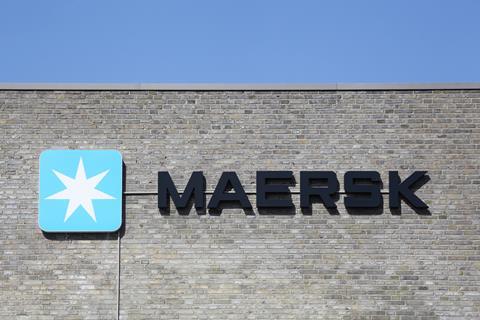New facility spread over 13,000m2 at Dubai Industrial City serves the FMCG sector with ”uninterrupted cold chain logistics solutions”
AP Moller-Maersk has opened the doors to its third warehousing and distribution facility in Dubai, UAE, which is also its first cold store in the country.

Situated at Dubai Industrial City, Maersk said its cold store was strategically located when it came to connectivity to Jebel Ali Port, Al Maktoum International Airport, direct road access across the UAE and an Etihad Rail freight terminal.
”The demand for perishables that require cold storage is rising in the UAE owing to the growing population and robust tourism resulting in increased demand for speciality foods without compromising the integrity of the product,” said Christopher Cook, managing director, Maersk UAE, Oman and Qatar.
”At Maersk, our purpose is to improve life for all by integrating the world, and we saw an opportunity to establish a facility that would help us achieve our purpose in UAE,” Cook continued.
”Our new cold store facility is helping us safeguard the integrity of perishables and offer them to end users through uninterrupted cold chain solutions.”
Maersk pointed out that consumers were increasingly demanding more choices for frozen and refrigerated food products in supermarkets with extended shelf-life and an optimum level of product quality, making cold chain logistics more important than ever before.
With the 12,500-pallet position space at the new facility, Maersk said it was aiming to make inroads into the large and growing demand for frozen, chilled, and ambient storage in the UAE.
”The cold store facility, combined with the integrated logistics solutions offered by Maersk that include surface, air and ocean transportation, customs clearances, and supply chain management, will provide Maersk’s customers with the opportunity to move their goods seamlessly while dealing with a single logistics partner leading to potentially faster turnaround times, higher visibility, better control and more predictability of their supply chains,” the group added.



